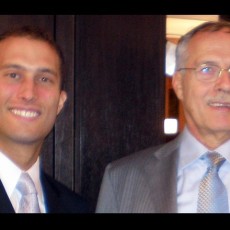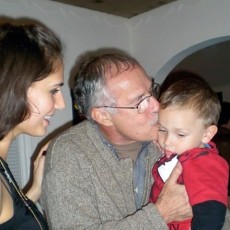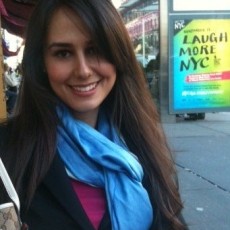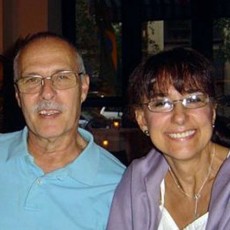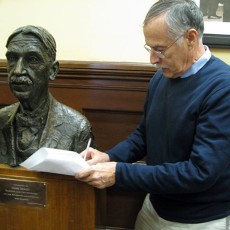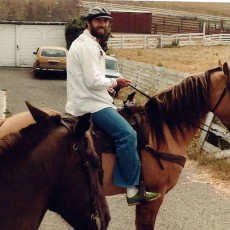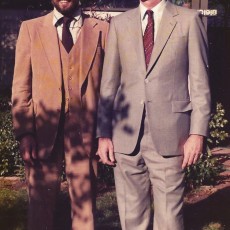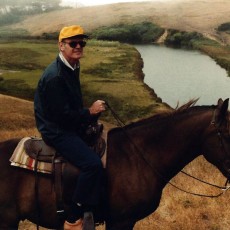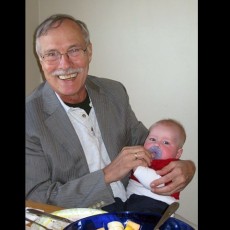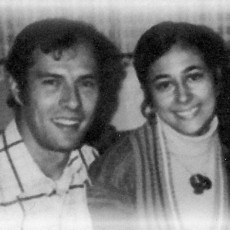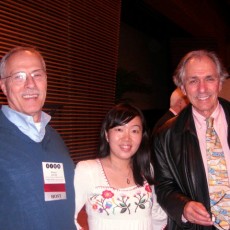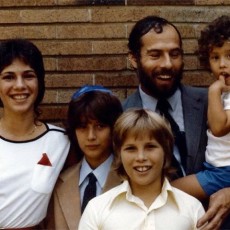Henry “Hank” Levin
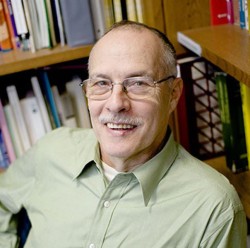
Henry “Hank” Levin is the William Heard Kilpatrick Professor of Economics and Education at Teachers College, Columbia University and David Jacks Professor of Higher Education and Economics Emeritus at Stanford University. He is also the director of the National Center for the Study of Privatization in Education and co-director of The Center for Benefit-Cost Studies of Education. Having lectured widely in Europe, Latin America, and Asia, Levin began his career at the Brookings Institution where he also worked as a long-term substitute teacher in the Washington, D. C. public school system. As the founder and director of the Accelerated Schools Project, Levin championed increased access to challenging curricula for at-risk children, a model now used in about 1,000 schools in the United States and abroad. Having written more than 300 articles and authored or edited twenty books, Levin is also a committee member for the National Assessment of Educational Progress (NAEP), Program for International Student Assessment (PISA), the National Research Council, and the National Academy of Sciences. Dr. Levin has written extensively about economic issues in education including privatization, school choice, and the social costs of inadequate education.
For more information, visit Henry Levin’s Website. To learn more about Hank Levin from his family and friends, visit his Reflections. To view photographs from Hank Levin’s personal collection, visit his Photo Gallery.
Curriculum Vitae Suggested readingsVisit the video below to watch a short overview of the interview with Hank Levin. Otherwise, see all six of the full interviews with Hank Levin below.
Video Interviews with Henry “Hank” Levin:
Dr. Henry “Hank” Levin grew up in an “active household” in New Jersey as one of six children including his twin sister. Inspired by his mother, a college graduate, and father, the owner of a modest furniture store, to study business at New York University, Levin recalls his adolescent experiences in the neighborhood public schools-he was both a talented distance runner and class clown. Having surprised his high school teachers by earning exceptionally high SAT scores, along with Levin’s experiences selling insurance and clothing prompted him to pursue a graduate degree in economics. Watch this clip to hear more about Dr. Levin’s journey to academia and belief in a purposeful education.
Having actively protested the involvement of the United States in the Vietnam War, Dr. Henry “Hank” Levin has long served as a funding advocate for social programs, specifically public education. First gaining practical experience as a long-term substitute teacher in an urban high school in Washington, D. C., Levin also wrote extensively about the drain of war spending on public finances. Through his work at the Brookings Institution and later Stanford University, Levin pioneered the study of economics in education. In this clip, learn more about Dr. Levin’s experiences “at the street level” as a school board member and concerned citizen.
Considered a pioneer in the study of economics in education, Dr. Henry “Hank” Levin worked closely with his colleague Dr. Martin Carnoy to support greater democracy in the workplace. Having challenged models whereby schools exist solely to produce labor power for the capitalist system, Levin considers schools to be part of the state with greater equality than is found in the workplace. Believing social movements to be “the most powerful tool of democracy,” Levin continues to examine issues of cost effectiveness in school while acknowledging that “we haven’t come very far” in some areas of education reform. Watch this clip to learn more about opportunities for social movements in America’s public schools from Dr. Levin.
Determined to increase access to challenging curriculum for “at-risk” children, Dr. Henry “Hank” Levin and his colleagues worked tirelessly to develop the Accelerated Schools Project based on a model since used by more than 1,100 schools in 41 states and Hong Kong. The project, though challenged by the regulatory No Child Left Behind legislation, continues to serve disadvantaged students through acceleration rather than “the repair shop” of remediation. When watching this clip, be prepared to enjoy humorous stories about Dr. Levin from his children and share his desire to better understand cultures from around the world.
Disappointed in the outcomes of school choice, Dr. Henry “Hank” Levin admits that the differences between charter and public schools have been very small. While he had once hoped that charter schools would serve as “incubators of ideas,” Levin notes that many have reproduced social stratification instead. Despite these concerns, Levin continues to believe that schools ruled by “ideas, excitement, and collaboration” can teach students to work together in a democratic society. Tune in to learn more about Dr. Levin’s vision for education and plans for old age!
Described by his family and friends as both humble and humorous, Dr. Henry “Hank” Levin insists that he “is a very lucky person.” His favorite words-passion and enthusiasm-exemplify his commitment to his work as an educational researcher and scholar. Advising graduate students to “go with what you think is important” when framing their own professional goals, Levin demonstrates his desire to positively impact students and schools by spending years working “in the trenches.” Watch this clip to hear Dr. Levin hum a tune from his favorite movie and share his message for the President of the United States.
Amrein-Beardsley, A. (2011, December 2). Inside the Academy video interviews with Dr. Henry Levin [Video files]. Retrieved from /inside-the-academy/henry-hank-levin
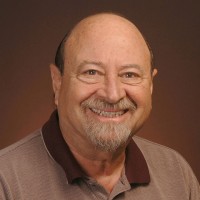
Dr. David Berliner
Dr. David Berliner first met his long-time friend, Dr. Henry “Hank” Levin, by happenstance. About to defend his dissertation at Stanford, David arrived at his defense only to learn that a committee member was unable to attend. Having just begun his new faculty position, Hank was quickly requisitioned as a substitute. Teasing that Hank “unleashed [him] on the world,” David praises his friend and colleague for “his scholarly work as an economist [and] concern for the practice of schooling.” Also admiring Hank’s pioneering work on the Accelerated Schools Project, David insists that “not every exceptional scholar chooses to spend a part of their career in the trenches trying to make a difference.” Hank not only “trained a large number of today’s practicing economists of education” but also shaped the scholarly discourse on charter and voucher plans through his research. According to David, he served as a “fair broker” for examining data in these areas. Praising Hank as a “productive and original scholar…[who is] at home in different cultures,” David also fondly recalls more than four decades of friendship, appreciating Hank for his “wonderful sense of humor about life and its vagaries.”
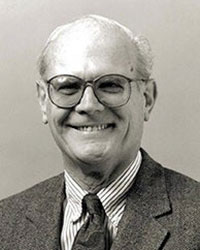
Dr. Edwin M. Bridges
As a close friend to Dr. Henry “Hank” Levin for nearly 40 years, Dr. Edwin M. Bridges recalls attending an invited lecture at the University of Chicago to hear Hank’s presentation on “Educational Production Functions.” Having impressed Hank during the presentation by asking several questions, Edwin later accepted a full-professorship at Stanford at his friend’s insistence. Celebrating special events together with their families, Edwin reminisces about his role as a witness at Hank’s wedding-the groom had insisted that “it was too hot to work” and hence the perfect day to get married! Describing his friend’s “mind-boggling list of professional accomplishments,” Edwin praises Hank’s work as a scholar and notes his influence as a mentor to graduate students seeking to contribute to the profession. Later founding the Accelerated Schools Project to provide challenging curriculum to low income and minority children, Hank “forged a program that exerted a positive impact on thousands of pupils throughout the world.” Noting Hank’s sincere concern about issues of social justice, Edwin has always been impressed by his friend’s “willingness to speak truth to power and to take unpopular positions when justice is at stake.” Characterizing Hank as “tough-minded yet tender hearted, generous, and kind,” Edwin explains that his friend is a “complex person…he pulls no punches but delivers them with a velvet touch.” For those who “want constructive criticism from someone with a first-rate mind,” Edwin insists that “Hank Levin is your man.”
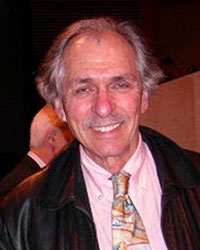
Dr. Martin Carnoy
First working together at the Brookings Institution and later Stanford University, Dr. Martin Carnoy and Dr. Henry “Hank” Levin have long shared common interests in education, poverty, and politics. Having both actively protested the Vietnam War during the late 1960s, Hank strongly encouraged Martin to join the faculty at Stanford as an economist in international education. Martin recounts their “many adventures together, academic and otherwise” as they conducted research on worker control and educational television and coauthored an influential book entitled Schooling and Work in the Democratic State (1985). Martin jokingly adds that they “formed a center for economic studies in education off-campus to protect [them]selves in case [they] didn’t get tenure.” Often traveling abroad in conjunction with their research, Martin also fondly recalls an interview with an official at the Organization for Economic Co-operation and Development (OECD) who insisted that “revolution was not going to solve all the world’s problems.” As the official proceeded to name several “nice heads of multinational corporations,” Martin dutifully wrote them down as Henry “promised they would be spared when the revolution came!” Nearly unable to contain their laughter, Martin explains that “the poor guy realized that we had been joking and turned completely red.” Also praising Henry for his instrumental contribution on the Accelerated Schools Project, Martin believes that his friend “did his best work in figuring out how schools work…[as he] was able to communicate this understanding to both educators and economists in ways that make sense.” “Besides having a great mind and a critical problem solving approach to educational problems,” Martin also notes that Henry is “one of the world’s greatest schmoozers.” He is “a super networker who knows everyone and keeps his ear to the ground” and “makes it part of his job to know what is going on-everywhere!”
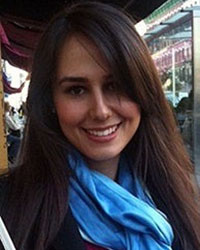
Bianca Levin-Soler
Bianca Levin-Soler “feels incredibly blessed to have [such an] amazing father,” describing Dr. Henry “Hank” Levin as “kind, caring, intelligent, nurturing, and hard working.” Illustrating his goofy and at times embarrassing sense of humor, Bianca recalls their daily walks to elementary school each morning-he teased her with tales of attacking bamboo plants and often sang opera loudly despite her mortification. While praising her father’s “tremendous success in the field of educational economics and school reform,” Bianca notes that “his most significant accomplishment is personal.” As a loving husband and father, he has created a strong family and has acted as an exemplary role model for his five children. Bianca admires both “his incredible work ethic and humility,” explaining that he has “always brushed aside the frequent recognition he receives for his success and hard work.” Emphasizing his love for his job and passion for education, Bianca insists that he has “never taken himself too seriously and injects humor into most situations.” Both unassuming and nonjudgmental, her father has taught each of his children “to care about other people.” Bianca has carried these words of wisdom with her throughout her life.
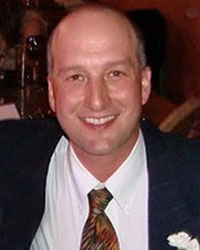
David Levin
As Dr. Henry “Hank” Levin’s oldest child, David Levin fondly recalls taking “day trips to San Francisco as a young kid in elementary school.” Reminiscing about a visit to Chinatown, David describes his experience at the famous Sam Wo’s restaurant with his family. When entering the restaurant, David distinctly remembers the waiter’s fateful warning “to be careful when pouring the hot tea.” After the seemingly inevitable spill of tea cracked the surface of an old marble table, the waiter quickly began yelling, “I told you so, I told you so”-words never forgotten by David or his siblings. Citing his father’s most significant professional accomplishment as his development of the Accelerated Schools Project, David explains that it was “designed to improve education quality for at-risk students by providing a program and curriculum with positive goals, and involvement from parents, teachers, and students.” When asked to capture the essence and nature of his dad, David not only praised him for his “positive contributions to Economics of Education” but also characterized him as “a very intelligent, caring person with a great sense of humor and strong passion for his work [and] helping people.”
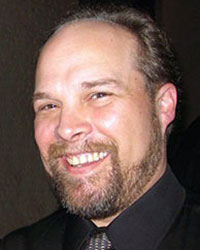
Dr. Jesse Levin
Sharing “a mutual respect for another, as well as a deep passion and commitment to [their] respective work,” Dr. Jesse Levin and his father Dr. Henry “Hank” Levin “have a relationship that is not only personal but also professional in nature.” Having earned his doctorate in economics of education, Jesse “has always known [his] father was deeply committed to promoting social justice and that he felt education was a key path to achieving this end.” Perhaps unknowingly, his father instilled in him “the notion that all children regardless of background or circumstance are important, have vast potential to be realized, and necessarily deserve equal access to a quality education.” While professionally inspired by these core beliefs, Jesse also notes that his father “is a really, really, really funny guy” to those who know him personally. Noting his propensity to sing loudly in the car, Jesse recalls listening to lively renditions from Gilbert and Sullivan, selections from the H.M.S Pinafore, the Mikado, and the Pirates of Penzance. Also known to “blast music on the stereo system” in the morning before school, Hank encouraged the family dog Laila to jump on the bed and lick the children’s faces! Jesse candidly describes his father as “a walking catalog of jokes,” often asking “Did you hear the one about…?” Both an inspiration to his children and distinguished educational researcher, Hank has not only produced excellent research but also served as a mentor to “countless numbers of students to whom he has faithfully passed along his knowledge.” Describing his father’s “unwavering commitment…to improve people’s lives through education,” Jesse also notes “that his passion is coupled with the spirit of a scientist.” As “an intense thinker,” Hank has produced “a myriad of well-written research” both independently and in cooperation with fellow academics and students. To his son Jesse, “this interaction and exchange of ideas” has played a significant role in defining his father’s personal and professional identity.
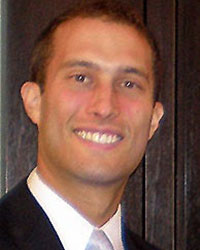
Josh Levin-Soler
Describing his father Dr. Henry “Hank” Levin as his “mentor and role model,” Josh Levin-Soler explains that “he has been and continues to be a life teacher.” Illustrating his father’s “tremendous sense of humor,” Josh recounts a story often told to him by his mother. While attending a cocktail party, a well-meaning guest approached his parents, “gushing” about their beautiful baby, noting her curly hair and perfect face. Hank smiled politely throughout the conversation, responding simply when asked the baby’s name: “Her name is Joshua!” Noting in retrospect that his father “got a very subtle joy out of stringing the conversation along until the punch line,” Josh insists that “he is a joke-teller to the core.” Josh also recalls a memorable, fun-filled family vacation to Mexico, partly spent playing games with his father. Encouraged to sneak up on his mother in an effort to frighten her while wearing an “origami mask fashioned out of newspapers,” Josh enjoyed each successful scare-spurring what is now known among family members as “Let the Games Begin!” Proud of Hank’s professional achievements as a teacher and researcher, Josh characterizes his father as a mentsch, noting that he “deeply believes in doing the right thing, in being a good person, and in doing your absolute best.”

Mia Simmans
Mia Simmans and her father Dr. Henry “Hank” Levin have “a relationship of great intellectual camaraderie [often] sharing ideas and inspirations…and interested in what the other thinks, feels, and imagines.” Mia is “grateful for her father’s wisdom, insight and guidance,” explaining that she “feel[s] so lucky to have him in [her] life.” Recalling her ride on his shoulders “in the forefront of a massive peace march at Stanford in 1969,” Mia remembers “throwing peace signs with her hands and riding so proud [as] the tallest one there!” Later able to watch video recordings of the march on the evening news, the then five-year-old Mia thought “it very strange to be both here and there at the same time.” Also impressed by his “playfulness with language,” she can still recite the limericks they once wrote together, noting that Hank’s “sense of humor was always absolutely irreverent.” Mia describes her exposure to a “wonderful mix of musical influences” as a child, explaining that Hank was “a great lover of music.” She recalls “long car journeys in which he would sing (and act out while driving) the H.M.S. Pinafore or Madame Butterfly in [its] entirety!” Citing her father’s ability to reconcile his past and present as his most significant achievement, she notes that Hank “has been an amazing example of taking what you’re given and improving it through trial and error, never giving up.” His “indomitable spirit and innate belief in a better future” demonstrate his character and resilience. Mia’s description of her father as a long distance runner also encapsulates his essence as a person; he is “all strength and grace and focus.”
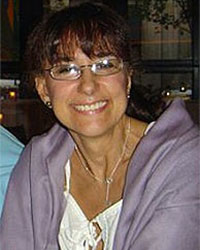
Pilar Soler
Describing her husband as “sensitive, kind, and humble,” Pilar Soler and Dr. Henry “Hank” Levin have been married for nearly four decades. Most proud of their children, Pilar and Hank have taught them to be “responsible and socially caring adults who are dedicated to their families and social betterment.” He is also “very funny [with] a corny sense of humor,” according to Pilar. Recounting her attempt to perm his hair while she was nearly full-term in her pregnancy, Pilar admits she “was no expert on this and didn’t follow the directions correctly.” Having convinced her husband to cooperate in exchange for a coveted nap, Pilar explains “he sat patiently with his hair in pink curlers with the chemicals and papers, kind of applied haphazardly.” Absolutely horrified by the results, Hank likened his new look to that of Albert Einstein “only wilder and larger.” Inducing labor through her uncontrollable laughter, Pilar notes that she gave birth to their son the following morning. Recalling his irritation, Pilar adds that Hank “wore a hat both indoors and outdoors for the next three months!” Also “known for [displaying the] utmost integrity and loyalty in friendship,” Hank has worked collaboratively with his wife to “develop and implement the Accelerated Schools Project.” Proud of both his personal and professional achievements, Pilar notes that her husband demonstrates “exceptional professional responsibility and [a strong] work ethic.”
